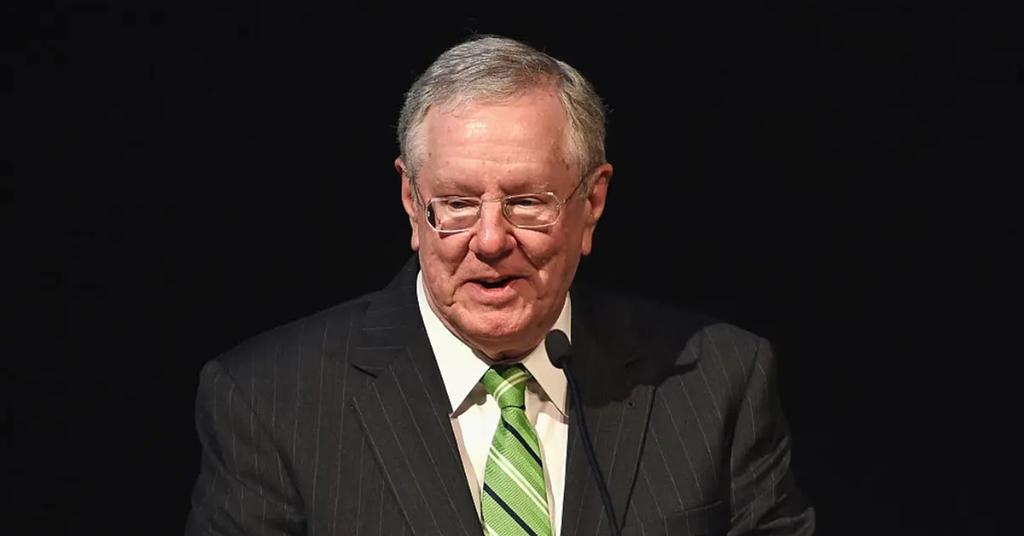Is the landscape of media ownership shifting dramatically, and if so, what are the implications for the future of journalism? The recent acquisition of Forbes Global Media Holdings by Austin Russell, the young founder of Luminar, signals a bold new chapter in the storied history of this American business institution, potentially reshaping the very foundations of how we consume information.
The deal, finalized with Integrated Whale Media Investments, marks a significant transition for Forbes, a media empire that has chronicled the financial successes and failures of the world's most influential figures since its inception in 1917. The magazine, known for its rankings of the world's wealthiest individuals and companies, has long been a cornerstone of business journalism, providing insights into finance, industry, and investment. However, the acquisition by Russell, a tech entrepreneur, raises critical questions about the future direction of Forbes, its editorial independence, and its ability to navigate the complexities of an evolving media landscape. The presence of a Hong Kong investment group as majority owner has also fueled speculation about potential ties to China, adding another layer of intrigue to the story. The sale also signifies the end of an era, as the Forbes family relinquishes its remaining stake in the company, though Steve Forbes, son of the founder, will continue to be involved. The price of the deal underscores the fluctuating values of media properties, a contrast to past acquisitions by the likes of Rupert Murdoch and Michael Bloomberg, who built their empires in a different media era. The sale price, a mere fraction of the once soaring valuations of digital media companies, reflects the turbulent times and challenges facing the industry. The acquisition also raises concerns about the potential impact of market downturns and the challenges of managing both a successful technology company and a media empire simultaneously.
| Feature | Details |
|---|---|
| Full Name | Austin Russell |
| Age | 28 (As of 2024) |
| Nationality | American |
| Occupation | Founder and CEO of Luminar Technologies, Owner of Forbes |
| Education | Stanford University (Studied Physics) |
| Career Highlights | Founded Luminar Technologies at age 17, a leading lidar (light detection and ranging) technology company. Acquisition of majority ownership in Forbes Global Media Holdings. |
| Net Worth (Estimated) | Varies with Luminar's stock performance (as of 2024, estimated to be over $1 billion) |
| Business Interests | Luminar Technologies, Forbes Global Media Holdings, and other investments. |
| Key Challenges | Market downturns affecting Luminar, losses, and navigating the media industry. |
| Vision | To grow and philanthropize the Forbes media empire. |
Luminar Technologies Official Website
- Allthefallen Latest Updates Ddos Issues Anime Community
- Stray Kids Members Ages Profiles And More 2024 Edition
Forbes, once a symbol of traditional business journalism, is now navigating a complex web of challenges. The company's business model, which relies on a paid contributor network and generates revenue based on traffic benchmarks, is under scrutiny. The recent acquisition attempts and valuations, along with the previous attempts to go public through a blank check merger, highlight the industry's struggle for financial stability. In February 2022, the company reported revenue of $259 million in 2021, representing a 40% increase from the previous year, which shows it's continued financial strength. The acquisition by Russell and Integrated Whale Media Investments, with support from a buyer group including Sun Group and GSV, came with an aggressive deadline to close the deal, according to Axios.
The transaction is not without its complexities. The rumors of ties to China and the involvement of various investor groups raise questions about the future direction of the publication. Moreover, the market downturn and the financial performance of Luminar pose challenges for the new owner. The departure of the Forbes family, who sold their majority stake in 2014, further changes the character of the enterprise. Steve Forbes, however, remains involved, potentially helping to bridge the past and the future. The challenges are not new. Over the years, Forbes has had to contend with the evolution of media, including the rise of digital platforms and shifts in how audiences consume information. The magazine has also needed to adapt to shifting consumer tastes. The acquisition also reflects a trend of wealthy individuals and businesses investing in media properties, a phenomenon that has been seen with figures like Jeff Bezos and Rupert Murdoch.
The story of Forbes offers a rich case study in business and media. The magazine has documented and analyzed trends across finance, technology, and business. It has been a platform for conversations about wealth, power, and global commerce, making it a key player in business news. Now, as it enters its next phase under the leadership of Austin Russell, it is embarking on a new journey, one full of potential. The new owner's stated vision is to grow and to "philanthropize" the media empire. This could provide a different direction for the publication, but the path ahead presents challenges. The market conditions, combined with the shift in ownership, will define the future of Forbes and its role in the landscape of information.
The acquisition of Forbes by Austin Russell and Integrated Whale Media Investments also emphasizes the ongoing transition from traditional print media to digital platforms. The reliance on a contributor network, the attempt to go public, and the focus on revenue generation are signs of a media industry in flux. The challenge for Forbes, and for the media business as a whole, lies in balancing editorial independence with financial sustainability. Russells involvement, backed by other investors, may offer new chances for Forbes to innovate in its current environment. It will be intriguing to see how Forbes addresses those developments while staying loyal to the values of impartial reporting and editorial accuracy that have made it a trusted voice.
The financial aspect of the acquisition is important to consider. Merchant bank GSV's CEO Michael Moe had previously been in exclusive negotiations to acquire Forbes Media LLC for around $650 million. This points to the shifting valuation of media companies. The fact that the deal ultimately went to Russell, with a different investment structure, reveals the competitive dynamics of the media sector and the various strategies employed to navigate the marketplace. The price Forbes was valued at and the conditions of the deal are indicative of a media environment facing many headwinds. The success of this venture will depend on a number of factors, which include market conditions, how effectively the new management team navigates the editorial and business aspects of the organization, and the capacity to appeal to new audiences. The transaction is occurring at a time when the media sector is facing challenges like declining print sales and the rise of digital platforms. The challenge will be adapting to those modifications while maintaining a brand with such a rich legacy.
The shift in ownership of Forbes also reflects a larger trend in the media industry. Billionaires, like Rupert Murdoch, have long been powerful figures in media, buying publications and shaping public discourse. The example of Bezos, who bought the Washington Post, shows how people with financial means can enter the media world and create their own publishing ventures. The acquisition of Forbes by Russell represents a convergence of technology and media. The blending of these two sectors could lead to innovation and provide new opportunities to report on business and finance. The transition is noteworthy because of the contrast between the new owner's background and that of the more established media moguls who have traditionally controlled the world of business news. The merger also highlights the changing ways that companies are valued, which has ramifications for the entire industry.
The challenges faced by Forbes are not unique. Many media companies are grappling with the shifting demands of modern audiences. The rise of social media, the proliferation of information, and the increasing reliance on digital platforms have all changed the way that media is consumed and monetized. The need to create content that resonates with readers and maintains brand loyalty is more important than ever. The new owners of Forbes face many challenges, especially the current business climate. Forbes must demonstrate its ability to stay afloat and thrive while navigating the complex and competitive terrain of the media business. The stakes are high, not only for Forbes but also for the future of independent journalism. The magazine is poised to embrace changes while preserving its credibility.
The involvement of Steve Forbes, who will continue to play a role in the company, is crucial to the transition. He has been involved in the magazine's operations for many years. He can give the publication stability and institutional knowledge. His involvement may aid in preserving the magazine's editorial identity and legacy. The transition will also provide a chance to embrace innovation and investigate fresh methods of content delivery. Forbes will need to continue to be a source of insightful, accurate information, which will enable the brand to flourish in a rapidly changing industry. The new owner's vision, combined with the involvement of Steve Forbes, has the potential to create a powerful force in the business of media.
The deal to acquire Forbes highlights the shifting dynamics in the business news industry. Forbes has a long legacy, but it faces the need to adapt. The changing ownership and vision of the company provide an opportunity for innovation and the continued evolution of the brand. The acquisition of Forbes is a significant event in the world of journalism, and all eyes are on the future of this media pioneer. The story of Forbes provides a compelling case study on business, media, and the forces that are transforming the world around us. The future will reveal whether the acquisition by Russell will result in a reimagining of the media landscape or, instead, will be a reflection of the challenges facing the sector.



Detail Author:
- Name : Miss Amely Hudson
- Username : riley02
- Email : estel.boyle@keeling.com
- Birthdate : 2000-06-06
- Address : 166 Dickens Parkway Apt. 317 Port Rhianna, UT 01049-0794
- Phone : 657.973.9228
- Company : Johnston-Kautzer
- Job : Forensic Science Technician
- Bio : Corporis voluptates molestiae quo iste. Pariatur saepe aut id eos asperiores vel sit. Aliquid mollitia vero sed voluptates dolor earum.
Socials
linkedin:
- url : https://linkedin.com/in/vonruedena
- username : vonruedena
- bio : Ea sunt esse unde consequuntur quaerat numquam.
- followers : 3052
- following : 2801
tiktok:
- url : https://tiktok.com/@adalbertovonrueden
- username : adalbertovonrueden
- bio : Et animi quaerat vel in atque tempora qui.
- followers : 6988
- following : 21
twitter:
- url : https://twitter.com/vonruedena
- username : vonruedena
- bio : Quos mollitia temporibus odio. Dolorem suscipit similique iure est id omnis. Voluptatum recusandae aut expedita quia consequatur.
- followers : 3338
- following : 1213
instagram:
- url : https://instagram.com/adalbertovonrueden
- username : adalbertovonrueden
- bio : Molestias mollitia non cum beatae a. Rerum fugit amet commodi quia.
- followers : 883
- following : 1593